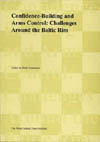Författare/Authors
Redaktörer/Editors

Det finns inte längre några kanoniska hot runtom Östersjön. Den tidigare, splittrande ordningen har avslutats men det finns fortfarande ett antal problem kvar, såväl med avseende på traditionell säkerhetspolitik som också hot som uppstår ur det osäkra och oförutsedda. Boken fokuserar på möjligheterna till vapenkontroll och säkerhetsnätverkande. Några av bidragen fokuserar på aktörer, andra fokuserar på särskilda temaområden och ytterligare andra på huvudsakliga frågeställningar som relevansen av vapenkontroll efter situationen från Kalla kriget och förhållandet mellan vapenkontroll och regionalisering, Bidragen söker gemensamt att se på utmaningarna från nya perspektiv och belyser infallsvinklar som gynnar Östersjöregionens behov.
There are no longer any canonical military threats around the Baltic Rim. The previous, divisive order has come to and end but there are yet a number of problems left both in terms of traditional security policies as well as threats that flow from uncertainty and the embrace of the unpredicatable. This book focuses on the prospects of arms control and security networking. Some of the contributions are actor-specifik, some deal with particular issue-areas and the remaining ones take up more principal questions such as the relevance of arms control in the post-Cold War situation and the relationship between arms control and regionalisation. They are unified by the aim of looking upon the challenges with fresh eyes and the singling out of approaches that are in tune with the needs of the Baltic Sea region.


